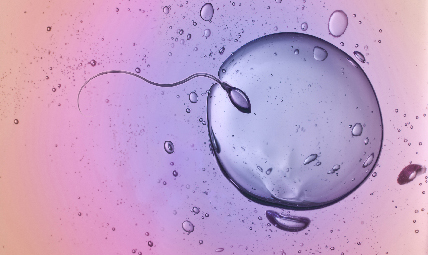The first results of a preimplantation genetic screening study could give new hope to couples who have experienced recurrent miscarriage while trying to conceive.
The study, led by Dr Francesco Fiorentino of the Genoma Laboratory in Rome and published in the journal Human Reproduction, used technology developed by Cambridge Enterprise portfolio company BlueGnome to achieve a clinical pregnancy rate of over 70% in patients suffering from recurrent miscarriage due to balanced translocation in one or both parents.
Balanced translocation, where part of a chromosome has broken off and reattached in another location, is a condition carried by up to one in 500 people. Carriers are generally unaffected by this condition, however the underlying genetic aberrations can result in embryos with large structural imbalances which are seldom viable, frequently ending in miscarriage.
We now appreciate the there is a real benefit in screening all chromosomes in these cases, something that is very straightforward with an approach like 24sure+.
Dr Francesco Fiorentino
The team at Genoma used BlueGnome’s 24sure+ platform to screen 228 embryos from 28 affected couples undergoing IVF treatment. The paper reports that 24sure+ gave results on 93% of the samples tested, but that only 16% of these were genetically normal.
As a result, viable embryos were identified in over 60% of the couples. Most encouraging, over 70% of the embryos transferred in these cases went on to form successful pregnancies, more than double the rate that was reported using earlier, FISH (fluorescent in-situ hybridisation) based techniques.
Dr Dagan Wells of the University of Oxford, who uses the same 24sure+ platform at Reprogenetics UK, said, “Our intuition has always been that the underlying fertility of couples with balanced translocations should be very good, and that if we could reliably identify and transfer a normal embryo, we could expect a very good outcome. The results from Genoma in Rome are consistent with this hypothesis and indeed our own experience at Reprogenetics.”
Dr Wells has also recently published data using BlueGnome microarrays to screen embryos from carriers of chromosome rearrangements. His findings from patients in the UK echo those of Dr Fiorentino, with only 22% of the embryos produced found to be chromosomally balanced.
In addition to significant improvements in outcome Dr Fiorentino’s paper also reported that in this cohort, with a mean maternal age of 37, more than a quarter of the embryos were unaffected by imbalances inherited from the parents but were carrying whole chromosome imbalances more likely to be associated with high maternal age. The importance of this finding was stressed by the paper’s author. “We now appreciate the there is a real benefit in screening all chromosomes in these cases, something that is very straightforward with an approach like 24sure+.”











